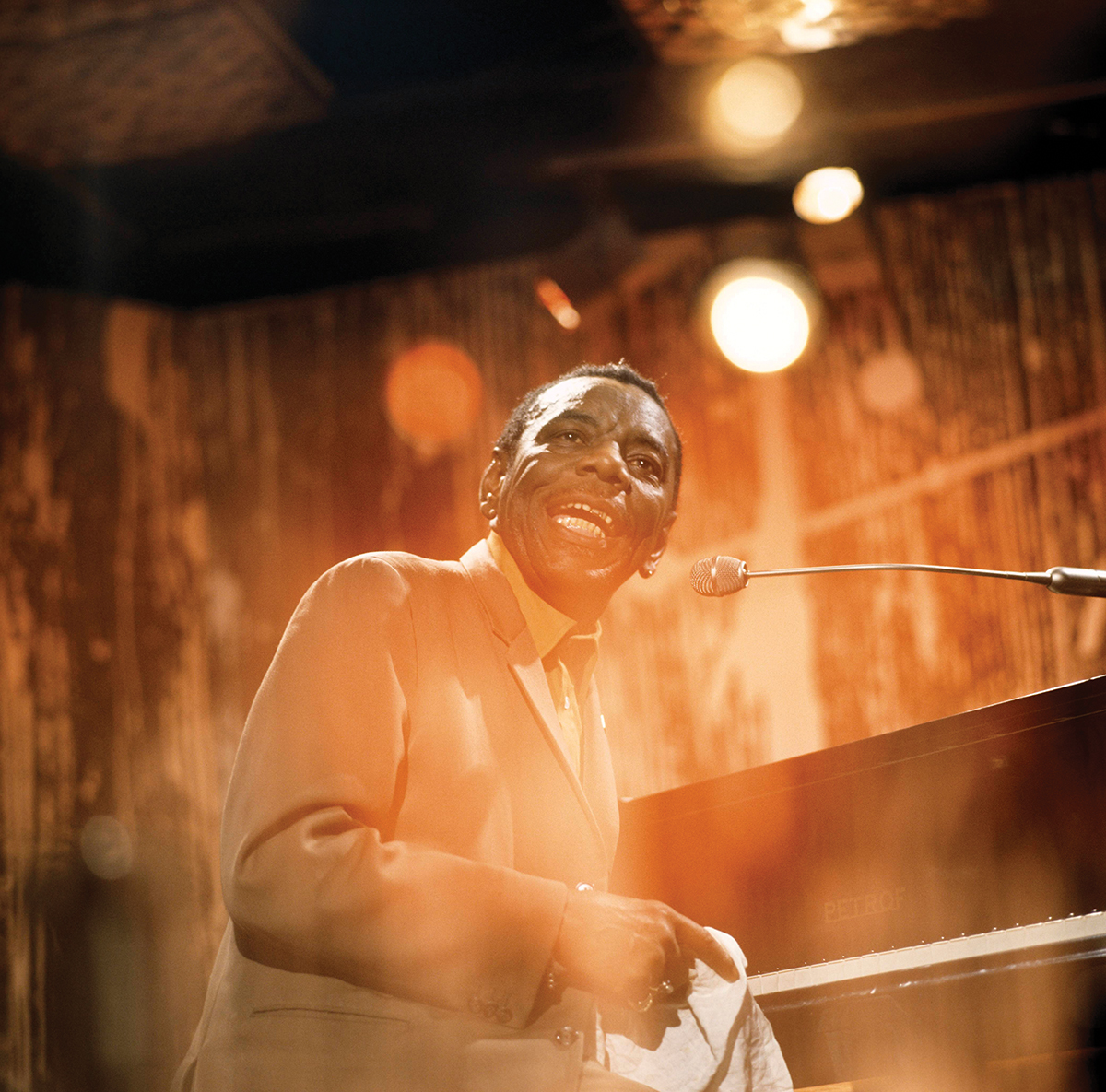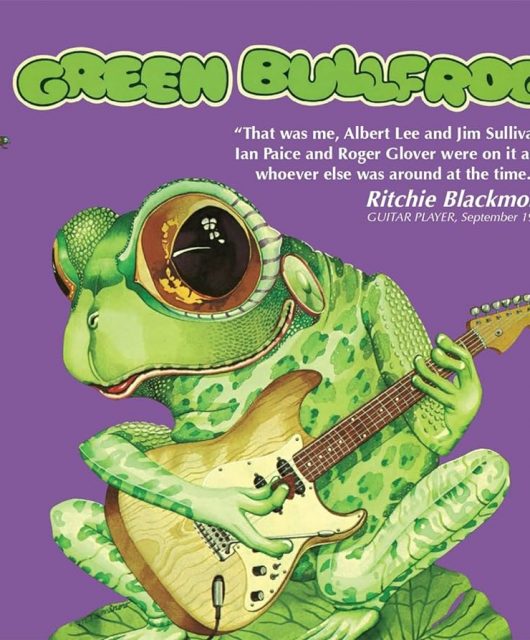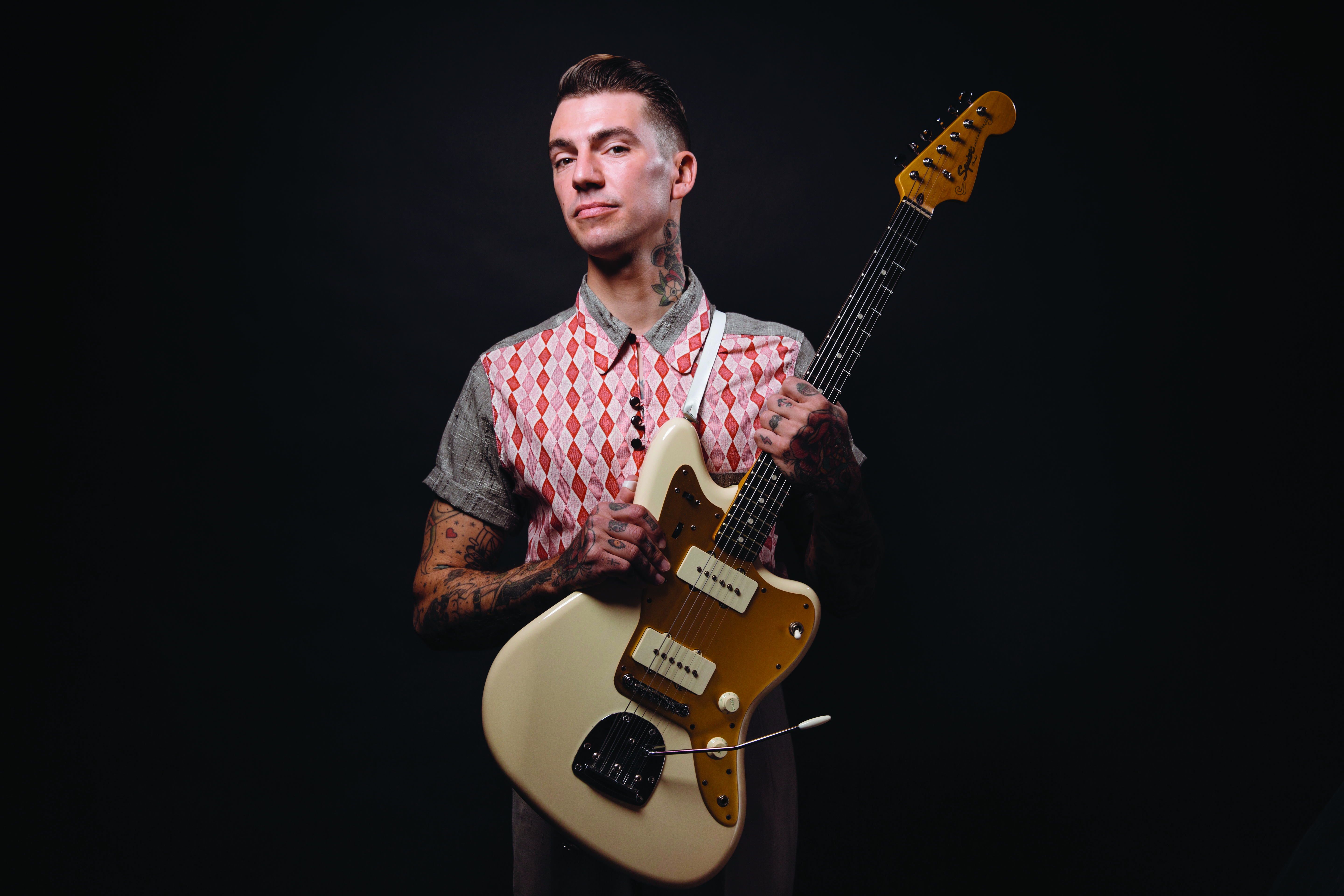Champion Jack Dupree’s startling life story took in everything from early tragedy to transatlantic success. John Howard remembers a chance encounter with the blues icon when he returned home for a show in New Orleans…
Twenty four years after I first caught blues piano player Champion Jack Dupree’s highly entertaining act, I was sitting in a bar in North Rampart Street, New Orleans, when a familiar figure walked in. This was April 1990, and Champion Jack was due to make his return to the States to play at the New Orleans Jazz and Heritage Festival after an absence of 37 years.
By chance, he was staying where I was, The French Quarter’s Landmark Hotel. This was perhaps my tenth visit to the Crescent City on a mission to see Louisiana’s finest, from Jerry Lee Lewis to Aaron Neville and Tony Joe White to Zachary Richard. Someone at JazzFest HQ must have realised that New Orleans’ own boogie-woogie pianist – the self-described last of the barrel-house players – was available for bookings.
I went over and introduced myself to Jack and his charming German manager Margaret. I was alone for the week, since the group of friends I was travelling with had headed into bayou country of south-west Louisiana, where they planned to catch crawfish. Rather than spending the day knee-deep in cold muddy water, Champion Jack and I, preferred the bar to bare-footing. The first thing he said to me was: “Shakespeare, he say, have another drink.” Jack was fond of cod-Shakespeare quotes, both on and off stage.
Although he was born and raised in New Orleans, due to the many years he spent in Halifax, Yorkshire, and then Hanover, Germany, Jack had forgotten the geography of the picturesque French Quarter. My visits had taught me the location of the best bars and cafes, the live music venues such as Preservation Hall and Storyville, the former sites of Cosimo Matassa’s legendary recording studios, and what drinks to order at Brennan’s bar and The Big Kahuna, so I found myself bolted on to Champion Jack’s entourage and in the unusual position of being an English guy showing a New Orleanian around his own birthplace.
Bit by bit over the next few days, Jack told me his story. Whether he embroidered the facts or not, it was a startling tale. He believed the Ku Klux Klan were responsible for the house fire that killed his parents, leaving him an orphan at the age of one. He knew Louis Armstrong at The Colored Waifs’ Home, although Louis was 10 years older. Jack learned piano from a character known as Drive ’Em Down, also known as Willie Hall, watching him play in the clubs that would not have permitted the entry of a youngster had not the pianist said he was his son.
There were more remarkable tales, too, such as the fact that it was former heavyweight champion Joe Louis who introduced him to boxing, hence his nickname ‘Champion’, winning more than 100 bouts and several Golden Gloves titles. Jack also revealed that the reason he had come to Europe in the first place was to play piano with Judy Garland at the London Palladium.
I became friendly with Jack’s guitarist, a genial Dane named Kenn Lending, who acted as a travelling companion, always watching his boss’ back in the same way The Lovin’ Spoonful’s John Sebastian travelled with Lightnin’ Hopkins, or Kent Duchaine looked out for Johnny Shines.
Kenn had recorded hours of Jack telling his life story with the aim of publishing a book, but it never happened. Jack taught Kenn to speak English which he did with Jack’s distinctive southern accent and unusual expressions, not least the ‘Northernism’: “Quit yer squawking.”
It had not escaped the notice of the hotel management that I was friendly with Jack, and that the man in question was probably a famous musician. I was asked to promote a show in the hotel lounge, and Jack roped in his friend and fellow pianist Sunnyland Slim for a festival of the 88s which attracted a noisy and appreciative capacity audience.
When he was not playing or being interviewed, Jack and manager Margaret liked playing the card game known in the UK as ‘sevens’ but which Jack described as playing dominoes with cards. We were in the middle of a game round the hotel pool when Dave Bartholomew, Fats Domino’s bandleader and co-writer, dropped in to pay his respects. Margaret monitored Jack’s drinking, and allowed him to sip beer all day. But as soon as her back was turned, Jack would say: “Cognac, cognac,” and would neck the brandy before she returned.
An accomplished pianist and singer, Jack was also a fine cook, a role he took up when he joining the US Navy in 1942. He was subsequently a prisoner-of-war of the Japanese and told me: “Us black guys were treated far better by the Japanese than the white guys. They believed we had been forced to join up. I got better food and accommodation. I made them jambalaya from time to time. There was no shortage of rice.”
Jack’s 1990 appearance at JazzFest was so successful that he was invited back the following year.
This time he was accompanied by his daughter Jackie, who grew up in Yorkshire, and had a strong Yorkshire accent. On both visits back to New Orleans, Jack cut albums with some of the city’s finest musicians.
I met him just once more, six months before his death from cancer in January 1992. He was playing at Leeds Castle in Kent, and was pleased and surprised to have received a $900 cheque from the Starlight Foundation, an organisation set up to collect royalties on behalf of rhythm’n’blues heritage artists. “They look after us old guys,” he told me. Amazingly, ex-Animal Alan Price topped the bill over this charming, dignified talent.
Oh, and what about that first time 24 years earlier? Champion Jack was backed by Mickey Jupp’s Orioles at a pub gig in Southend, and between songs told tall tales like that one about the pensioner who married a teenager, and died of over-enthusiastic love-making.
It took the undertaker three days to close the coffin lid…






